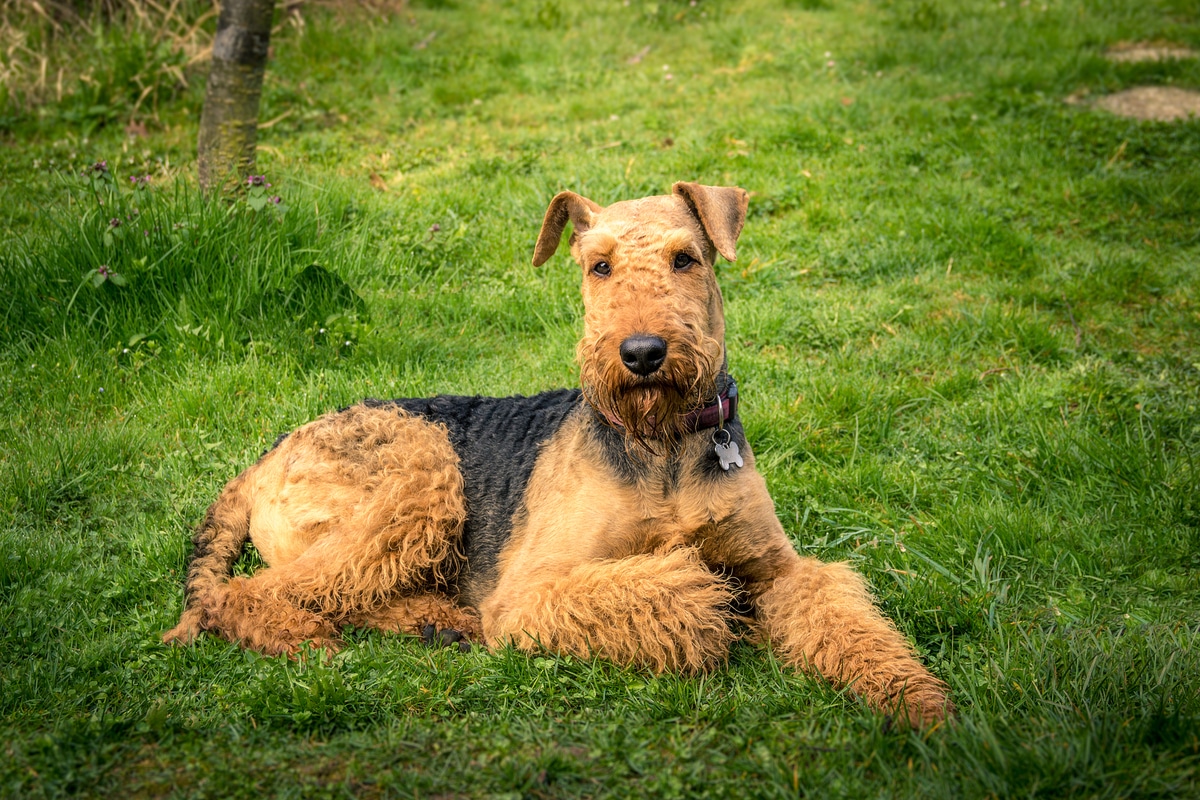
Basenji, a hunting dog, was developed from stock from central Africa. The Federation Cynologique Internationale puts this breed in both the Spitz or primitive categories. The unique sound of the Basenji's yodel-like voice is what makes it stand out. It is vital to find out more about the Basenji breed's history and unique characteristics before purchasing one.
Basenji's origins
Basenji is a breed of hound with an independent and intelligent personality. This breed loves to be active and will run, sniff, and play with its owner. Basenjis are available in red, yellow, or tricolored coats. These dogs are often called "mischievous dog"
Some Basenjis may bark but others don't. In fact, Basenjis tend to be less vocal than other breeds. They have a great watchdog instinct. They do not bark often, but can make other sounds such as meowing, whimpering, and even meowing. Basenjis make great pets for families with older children.
Basenji-like dog breeds were discovered in Libyan cave paintings that date back to 6 000 years. They were also found in cave paintings from Libya dating back to 6,000 years ago. Basenjis are also featured on Egyptian relics from 3000 BC. These relics depict the dogs with curled tails and pricked ears. Some even have hunting bells.
Characteristics

Another Basenji characteristic is its ability to become very independent. This is a good trait but it can also mean that the dog may be quite social at times. Basenjis are intelligent and can be difficult to train. They are also energetic, so they can become bored easily if they aren't kept busy. The breed is extremely old and appears on artifacts that date back to ancient Egypt or Babylon.
The Basenji, despite their independence and insularity, is a loving and loyal companion. Basenji are intelligent and are a popular choice for many because of their intelligence. The Basenji, unlike other dogs, will not lick themselves. The Basenji, however, will not wipe their nose on your favorite chair or clothing, as they are not like other dogs. They are perfect for those who desire a clean, sanitary home.
Take care
Basenjis are generally healthy dogs, but can suffer from a wide range of health problems. Basenjis can be susceptible to hypothyroidism. This is when their thyroid hormone levels drop too low. This condition can cause dry skin, increased susceptibility for skin diseases, and dilatation of pupils. It can also cause an increase in body weight, fearfulness, and aggression. The veterinarian will assess the dog's behavior to determine if hypothyroidism has been diagnosed. Replacement hormones can be administered if necessary if the dog has hypothyroidism.
Basenjis have an average annual vet bill of $500-$1,500. Plan accordingly. Pet insurance plans can be a great way to cover unexpected expenses. There are a variety of pet insurance plans available for Basenjis, and comparing plans is a good way to find a policy that best suits your needs.
Training
Training a Basenji can be difficult. This breed is well-known for its energy and willingness to obey commands. Basenjis should learn to obey their owners. However, they do show signs of obedience when given the proper commands. Here are some tips for training your dog. Use positive reinforcement and pay attention to your dog. It is important to reward your dog for obeying a command.

Basenjis can be sensitive dogs so positive training is essential. Clickers, lures, as well as positive reinforcement can be used to teach your dog tricks. You should avoid using force to train your dog. Force can lead to aggressive behavior.
Exercise
Exercise is a great way to bond with your Basenji, and there are several ways to get your dog moving. Walking or running with your Basenji is a great way to bond. Be comfortable so that your dog doesn’t overheat. You can also try walking laps around a local pond. This is an excellent way to give your Basenji extra exercise, without the danger of him wandering off.
Two 30-minute sessions per day is the best way to get your Basenji exercising. This exercise routine can consist of daily jogs, walks, or supervised yard romps. Basenjis are very active and require exercise, both mentally and physically. Running is a popular sport for dogs.
FAQ
Do I need to spay/neuter my pet dog?
Yes! Spaying and neutering your dog is very important.
It does not only decrease the number unwanted puppies, but also reduces the likelihood of certain diseases.
Female dogs are more likely to get breast cancer than male dogs.
Testicular cancer is more common in males than it is in females.
Your pet's spaying and neutering will also stop her having babies.
Do I choose a puppy or kitten?
It really depends on who you are. Some people love kittens, while others prefer puppies.
In general, however, puppies are more active and playful. Kittens tend to be very gentle and sleep a lot.
Both types of animals require lots of attention from their owners. They will quickly grow up and will require lots of care.
Regular medical checks will be required for them. So, you'll need to spend time taking them to the vet.
What are the responsibilities that pet owners have?
A pet owner must be devoted to their pet. They should also provide for their basic needs such as food, water, shelter, etc.
They must also teach their pets how to behave. Pet owners should not neglect their pet.
He should be responsible enough to clean up after it.
What age is it safe to have a pet as a child?
Pets should not be owned by children under 5 years of age. Cats and dogs are dangerous for young children.
Pet owners often end up with their children being bitten. This is particularly true for small dogs.
Some dogs, such as pit bulls or other aggressive breeds, may be aggressive towards certain animals.
A dog may appear friendly but it will still attack other animals.
So, if you choose to get a dog, ensure it is well trained. You should also supervise your child when she is playing with the dog.
Three things you should think about before getting a cat.
These questions should be asked before you purchase a cat.
-
Are there any health concerns for the cat?
-
Will the cat eat all my food?
-
Do I want a cat to love cats or just a pet?
What are the things you should consider when buying a pet?
Consider what lifestyle you want for your family and yourself. Do you have children? Do you have children? How old are they now Are there any special dietary requirements for them?
Are you allergic to anything? Are there any other things you should know about your pet's health?
These questions will help you decide if you want an active companion, a quiet pet dog, a cat that is house-trained, or a fish tank with tropical fish.
If you are considering adopting a puppy from a shelter, rescue group or other organization, you should meet them and make sure that you feel comfortable with them.
You should also verify that the animal has been vaccinated to prevent rabies, and other diseases.
Ask the owner if they will care for the pet while you are away. This will make it so you don't have worry about leaving your pet home.
You should remember that pets are a part of your family and that you should not adopt them unless you truly love them!
What are the signs that my dog could be sick?
There are many symptoms that indicate that your dog is sick. These symptoms include:
-
Vomiting
-
Diarrhea
-
Lethargy
-
Fever
-
Weight loss
-
A decreased appetite
-
Coughing
-
Difficulty with breathing
-
Bleeding from behind the nose
-
In stool or urine, blood can be found
These are just a handful of examples. Your vet will know exactly what to look for.
Statistics
- Reimbursement rates vary by insurer, but common rates range from 60% to 100% of your veterinary bill. (usnews.com)
- Monthly costs are for a one-year-old female mixed-breed dog and an under one-year-old male domestic shorthair cat, respectively, in excellent health residing in Texas, with a $500 annual deductible, $5,000 annual benefit limit, and 90% reimbursement rate. (usnews.com)
- Pet insurance helps pay for your pet's medical care, with many policies covering up to 90 percent of your vet bills. (money.com)
- Here's a sobering reality: when you add up vaccinations, health exams, heartworm medications, litter, collars and leashes, food, and grooming, you can expect a bill of at least $1,000 a year, according to SSPCA. (bustle.com)
- It is estimated that the average cost per year of owning a cat or dog is about $1,000. (sspca.org)
External Links
How To
How do you choose the right name for your pet?
Choosing a name for your pet is one of the most important decisions you'll make when adopting a new animal into your home. Names should reflect who your pet is and their personality.
You should also consider how others might refer to them - if you're going to use their name in conversation, for example. You should also consider how you would like to be called. What do you prefer, for example, "dog" or pet?
Here are some tips that will help you get started.
-
Select a name to fit your dog's breed. Look up names that are associated with the breed if you are familiar with it (e.g. Labradoodle). Or ask someone who knows dogs well to suggest a name based on the breed.
-
The meaning behind the name is important. Some breeds are named after people and places while others are simply nicknames. For example, the Labrador Retriever named "Rover" because he was always running!
-
How would you like to be called? Do you prefer "dog" to "pet?" Would you prefer to refer to your dog as "Puppy," or "Buddy",?
-
Remember to include the first name of your owner. It makes sense to give your dog a name that includes your last name but doesn't limit yourself to only including your family members' names. Your dog could grow up to become a member of your family.
-
Many pets may have more than one name. A cat, for instance, could go by different names depending upon where she lives. While she may be called "Kitty Cat" at her home, she might go by "Molly" when visiting her friends. This is especially true if the cat lives outside. They will often adapt their names to match their environment.
-
Be creative! There is no rule that says you must follow a particular naming convention. Be unique and memorable in your choice.
-
Make sure that your chosen name doesn't already belong to another person or group. This way you won't accidentally take someone else's identity.
-
Remember that choosing the right name for your pet can be difficult. Sometimes it takes some time to decide if a name is right. Keep at it until you find the right match.